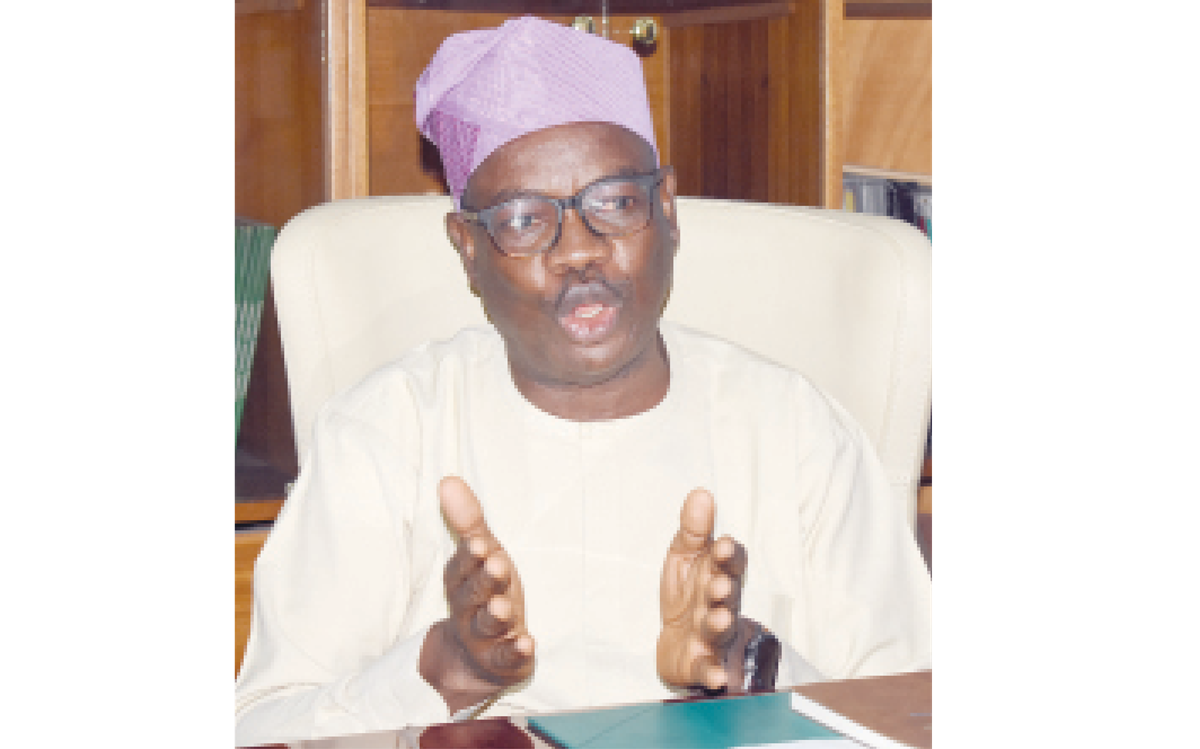Dignity of teachers in Nigeria will soon be restored — NCCE Executive Secretary, Prof Chijioke
By Clement Idoko
Copyright tribuneonlineng

Paulinus Chijioke, a professor of Technical Education, is the sixth substantive executive secretary of the National Commission for Colleges of Education (NCCE). In this interview with CLEMENT IDOKO, he speaks on the readiness of the colleges of education to commence dual mandate of running Nigerian Certificate in Education (NCE) and degree programmes concurrently in the pilot phase of the selected 18 colleges with effect from 2025/2026 academic session. He allays fears of possible discrimination against degree holders produced from the colleges, advocating incentives to attract best brains to teaching profession and sundry issues. Excerpts:
Recently, the Federal Government approved a dual mandate for Colleges of Education in Nigeria to run degrees and NCE concurrently, do you the colleges have the capacity to do this?
Permit me to give a little background information. Colleges of education have been in existence for over three decades through the transition of Advanced Teachers Colleges. The government then came up with an act in 1989 to establish the first Colleges of Education. Advanced Teachers Colleges were converted to the College of Education, while new ones were also established. In 1993 the Act was amended and finally, in 2023 the act establishing the Colleges of Education was again amended, and this time around, for the colleges, not only to run NCE, but in addition, to also produce degree holders in education. That is the degree component, which we now have christened as the ‘Dual Mandate.’
Initially, the colleges were running only the NCE, but it’s important to point out that some of these colleges were also producing degree holders in affiliation with universities. The students, who graduate from NCE, can upgrade to a degree level, right in some of these colleges, and the certificates are awarded by the affiliate universities, but the facilities are domiciled in the colleges. The colleges have also grown through government intervention, especially through Tertiary Education Trust Fund (TETfund) interventions over time. So many lecturers in our colleges have upgraded their skills. Today, we have so many PhD holders in colleges of Education. We have so many facilities in these colleges of education.
When we made an assessment of the level of facilities, resources generally, both human and physical facilities in these colleges, we found out that there are so many that are almost underutilised, if we continue to run only theNCE. It was based on this fact, that we put a proposal forward for the dual mandate. The level of investment the government has already made in these colleges in terms of human and physical resources are enough for the upgrade of these colleges to the point of running degrees alongside the NCE. The ninth Assembly passed the bill, but was not assented to by then former President. When this present government came on board, in a rare feat, President Bola Tinubu graciously assented to that act. I say rare feat, because it’s not common that when one National Assembly passes a bill another government will come and assent it into law. It’s really commendable and I think it was one of the foremost bills that President Tinubu signed, granting this dual mode idea. Some of these colleges that have enough resources have been selected. It is not a general thing for every college to run the dual mandate. There are criteria the government has set up in terms of the facilities and manpower capacity. The dual mandate when fully implemented would solve a lot of problems. One, the government would have curbed a lot of wastage because most of the colleges now have lecturers with PhDs and have stepped up in research and other community services.
The other aspect is that when these students are done with NCE, sometimes they find it difficult to upgrade into bagging degrees because they are subjected to waiting for the affiliate universities to open up spaces for them to be admitted, but with this dual mode now, the transition is very simple. When you finish your NCE in a college, that same college gives you admission for your degree. The government said we should run both parallel and that gives us the opportunity to open up more access. Those who want to gain admission directly to run a degree in education will be admitted. Candidates who cannot get admission directly into the universities for one reason or the other, the colleges are now open for them, that access has been opened.
ALSO READ: Dangote, NUPENG reach agreement, suspend strike
We also want to make it clear that the teacher training system is unique. These colleges have been equipped for training and to produce professional teachers. When I say professional teachers, they are teachers who by their training have the blending of both, the academic aspects; the subject area and pedagogy that is the means or the processes of proper delivery. In the curriculum of the NCE, you find out that almost six months or thereabout is spent on teaching practice, which easily is not done in the university. The idea of the teaching practice is for professionalism just like it is for medical schools. There are professionally arranged processes of training teachers in the Colleges of Education. So, with this dual mode, we are looking forward to more professional teachers being raised in these colleges of education. I’m not saying that universities are not raising professional teachers, but what I’m saying is that, based on the setup of the Colleges of Education, there is room to utilise many of the facilities that we have in the colleges to train and produce efficient teachers for the country. If you go to any college of education, you will see that the kinds of facilities there, are hardly found in most faculties of education in universities. The colleges of education are created only to train teachers. On the contrary, universities run so many other programmes. When the government gives an allocation to universities for all their programmes, the resources are thinly spread but for the Colleges of Education, everything is for teacher production. NCE basically is for the basic education while degree holders are for senior secondary schools.
When is the dual mode taken off?
The dual mandate has taken off this 2025/2026 academic session. What the government has done is to select 18 colleges of education for the pilot take-off.
What are the criteria for selection of the colleges for the pilot take-off?
First, almost all the 18 colleges selected have been producing degree holders in affiliation with universities. For them to run degree programmes in affiliation means that they have undergone resource verification and accreditation with the National Universities Commission (NCE). They had already been tested; they had the facilities and the manpower.
What are measures put in place to bridge the gaps to forestall the problem of dichotomy between degrees obtained from colleges of education and those of universities bearing in mind the age-long discrimination between university degree and HND holders in the public service?
The dual mandate is a new law. In the past, the colleges train only NCE, as such, there was no compulsion to have professors in the College of Education. However, now that they are running degrees, all other things have opened up. We are looking forward to that in the near future; definitely we’ll also be having professors in the Colleges of Education. Those who have already bagged their PhDs will also have to grow. What was common in the past was that once you have bagged a PhD in colleges and polytechnics after a while, your services will be transferred to universities. There was also a time in the history of this country when many universities did not have these professors too but as time went by, they started promoting their staff and hiring new ones. It’s a matter of time; definitely we will be having professors in the College of Education. Like I said, it’s a pilot now, as we progress, the needs will be made open and gaps that are identified will be filled. But for now, we are taking off with PhD holders.
On discrimination, I can assure you that there will be no discrimination between degree holders from colleges and polytechnics. Yes, it is just like anything that is new, people try to shy away from new products not because they are not of good quality. What manufacturers do normally is to innovate to make the product as much as possible acceptable to the public. They do a lot to refine the product to make it compete. We know that issues like, “you are a graduate from college; I’m a graduate from the university” might arise. We had a summit some two or three weeks ago and the National Assembly members were there. Specifically, the chairman of the House committee on college education made it clear in his address that there will never be any dichotomy, that they will make sure that they enact law to see that there is no discrimination against the other. It is just like when NECO was established. WAEC was older, some higher institutions refused to recognise NECO for admission, but government policy addressed the issues by putting them on the same plane and NECO also proved that they could measure up with WAEC. Today, everybody takes NECO or WAEC. There might be initial resistance because naturally, society is always resistant to change or exhibit a kind of a foot-dragging to embrace a new thing, but these issues have been taken care of in the planning.
Stakeholders have often complained about the quality of teachers, especially at the basic level of education, what is NCCE doing as the quality assurance umpire in ensuring teachers produced by colleges are globally competitive?
There is no evidence or research that has been carried to say that all our teachers are poorly performing. These are public opinions. I can say that in every sector, you will always have those who are also shining. Probably, we always blow off something that’s bad. Many of our teachers are also shining in our schools. However, that is not an excuse not to improve on the system. We have put a lot of measures in place to checkmate some inefficiency and other things that people have always complained about in terms of quality. Quality assurance is being stepped up. Curriculum review is going on. Recently, the Nigerian Educational Research and Development Council (NERDC), rolled out the curriculum for basic education, and the one of secondary we learnt is almost completed. Apart from trying to see that our curriculum is of global relevance and can compete globally, we are also accommodating those subjects that have been introduced in the new curriculum both at the levels of basic and secondary schools. At the end, we will be able to raise teachers who will not only teach those subjects effectively in the schools but with better delivery instructional approaches of the world standard. The COVID-19 has opened our eyes, so, today we are talking about a blended method of delivery, both remote or physical classroom teaching. Yes, people complain but we are doing all we can to see that our colleges produce the right people. One other thing we are doing is also to checkmate colleges that are illegally awarding certificates to Nigerians. We have clampdown on such institutions, closing them down. When we identify them we send their list to the ministry for approval and we go after them. Apart from regular quality assurance accreditation, we also do some monitoring and evaluation from time to time to see the fitness of these colleges. I also want to inform you that some of our teachers are doing very well in other countries. We receive certificates from South Africa, UK for verification.
I remember an occasion when you had to approach JAMB because of attrition in students’ application to colleges of education, are you not worried about this low enrollment into colleges and what is being done to address this?
First, we have to understand that there is a general apathy to teaching in this country. JAMB has the statistics and it is always saying that faculties of education in universities hardly fill the quotas that are for the degree in universities. At the NCE level how many of the students want to be teachers? Just carry out investigation into even those who are professors of education, do we have up to five percent of them that their children are studying education. People don’t want to study education because they feel that teaching is of low status in this country. To worsen the situation, it has even become like an all-comers job. When people look for jobs here and there and could not get one, they will say, I will go and teach. The other aspect to high attrition in students’ application to colleges is simple. The entry qualifications into universities and colleges are the same. Admission criteria into higher institutions in Nigeria are clear, five credits including English and Mathematics. So, why will someone choose a college of education, when he or she knows that with five credits, he will go and spend four years in a university and graduate with a degree? In the college of education, you spend three years for NCE and when you have to proceed to a degree, you spend another two or three years making six years as the case may be. While someone with the same qualification as you will spend four years. This is one of the reasons for the introduction of the dual mode.
The truth is that people do not have much regard for the teaching profession. The unfortunate thing is that in some states where colleges of education are producing teachers, when they want to advertise for recruitment of teachers, they will ask for degree holders and not include NCE holders, so how will those ones get jobs? The minimum teaching qualification in the country is NCE. These are things we have been advocating for a change. People think about the prospect of a course before choosing it. Everybody wants to read Nursing today because of their career prospects. The good news is that the government is trying to implement a lot of incentives for teachers and once they are implemented fully, I tell you people will rush back into teaching.
Just as you rightly spoke about incentives for teachers, why is the government finding it difficult to implement some of the robust incentives approved by the last administration for teachers and how can we see the dignity of being a teacher restored?
The dignity of teachers will be restored in the society. The government, like you rightly observed during the former Minister of Education, Adamu Adamu, rolled out so many incentives. There were some forms of allowances for rural teachers, even scholarships for people to study education. They were so attractive that if they had been implemented, by now, we could have moved further. One other problem or challenge is that education is in the concurrent list, and most of these schools are owned by the states. When the federal government made some of these laws, they needed to get the buy-in of the states. This is one of the reasons why we hold the NCE meeting once a year. Even in 1977 when the 6-3-3-4 system of education started, it was not all the states that keyed in at the same time. When these policies are rolled out, states are supposed to implement them. Look at the issue of the new minimum wage for an example, when the government rolled out 70,000 some states claimed that they could not pay.
The former president signed those policy issues and some of them are being implemented at the Federal level. One of the things being implemented is the retirement age of teachers. In the civil service today, it is only teachers that will retire at 65 by age or 40 by service. It’s one of the policies. As I said earlier, the challenge is more with the state governments but there is gradual implementation, especially due to ownership and the funds are not there. The incentives were designed to attract the best brains into the teaching profession and the government is concerned about that.
What are some of the key milestones in your efforts to transform teacher education in the country?
One thing we have achieved since I came on board is industrial harmony in our colleges of education. We have settled so many disputes. Today, we have made our colleges run like family. We operate a family structure. We’ve been able to bring the unions and administration very close and we work more cordially. In the past, we used to have a lot of friction between the union and chief executives, even among the management. There were frictions between the registrar and provosts, among others. Today, we have different committees that meet from time to time. The provosts and registrars now have their committee, even the governing councils. It has been so beautiful that we provided space for all the committees to operate from our premises here. If there is any issue, it is easy for us to address them without the public knowing.
Also here, we have improved the image of the commission. When I came in, we met some abandoned projects. The car park project was already written off; revived it and today is serving us and the public. We had a leaking roof and I was made to understand that it was planned to be a 10 storey building, but it stopped at five due to paucity of funds. However, with the help of God we brought in professionals and today the problem has been solved. Another thing is that we are the only Federal Government agency that our staff members retires at 65 years. On staff welfare, we are doing well; I have also encouraged some of our lecturers to upgrade from being Masters to PhD holders. Currently, over a thousand of our lecturers are pursuing their higher degrees in education. We are preparing for the commencement of this dual mode. Today, I can say that we have enough manpower to run the dual mode.
Funding is generally a major challenge in the education sector and as a regulatory agency how has this affected your operations in carrying out your mandate?
Funding is crucial, especially as it relates to teacher education. Paucity of funds is a reality; I cannot shy away from it. Inadequate funds are surely affecting our activities when it comes to carrying out our supervisory or regulatory functions. We need money to go out for resource verification. We need money for accreditation and all that. Our people need to move around, even if we have to use technology, we still need money to deploy these things. We are not an income generating agency, so, whatever is made available to us; we make judicious use of it. Funding challenges cannot stop us from doing our job but we could have been far ahead if enough resources were available. If we had enough funds, we wouldn’t have left this our building this way. This structure has been standing for over 30 years, it needs a lot of face lift, but the money is not there to facilitate that.



